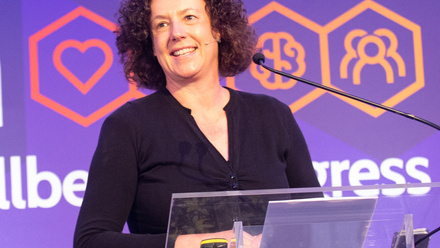Three reasons why embracing diversity and inclusion is good for business

We hear a great deal about diversity, but why is inclusivity so important? One reason that diversity and inclusion (D&I) is climbing up every business leader’s agenda is because diversity on its own simply isn’t enough.
Diversity is the measure by which businesses can gauge how D&I programmes are meeting compliance targets, and inclusion is the mechanism which ensures that diversity is meaningful, integrated and effective. To use an analogy, if diversity is being invited to the party, then inclusion is being invited to (and feeling comfortable enough to) dance. Below, I’ll look at some of the reasons why employers should maximise good inclusivity in the workplace and its business impact.
It encourages innovation
Diversity offers diverse perspectives, and engenders innovation by bringing together different people’s strengths and points of view. It’s something that helps businesses to embrace new ideas and accommodate different styles of thinking.
Looking at our customers first, like many companies, Bupa is a diverse business with customers from every imaginable background. By having a diverse range of employees, we’re better placed to understand our customers and their needs. We also operate a number of diverse business lines – insurance, dental, healthcare provision, and aged care – in locations around the UK.
Fundamentally, it makes good business sense to have an inclusive team with fresh ideas and perspectives. A good example of this is that as a result of diverse input, we have recently reviewed our family policies to broaden the definition of ‘family’ from a traditional to a more modern definition.
The bottom line benefit
Research has found that D&I brings real business benefit. More inclusive organisations out-perform the competition, with the most diverse workplaces (across gender, ethnicity and sexual orientation) being 45% more likely to financially outperform their industry average, according to The Value of Diversity, Involve & CEBR (2018).
There is also the secondary yet significant benefit of increased talent attraction and retention. D&I means that businesses get their pick of the brightest and best talent – from a much wider pool of candidates. That’s why we are currently reviewing our approach to recruitment (starting with executive recruitment) with a far more inclusive lens. We also offer an apprenticeship programme where candidates can enter Bupa through a less traditional route; 6% of our UK workforce are apprentices and we want to increase that to 10 per cent by the end of the year.
It’s the right thing to do
Finally, it’s the right thing to do to welcome a wide range of people from all backgrounds. It makes for a richer, more interesting place for us all to work, and means that we don’t have people feeling the pressure of trying to fit into an organisation and trying to be something that they are not. This is why last year we launched our ‘Everyone’s Welcome’ pledge alongside ‘Be You at Bupa’ – both are commitments that celebrate positive working environments and pledge to create a positive working environment where our employees feel comfortable bringing their whole self to work.
Championing D&I is a crucial part of creating a successful organisation. I was delighted to see Bupa UK named in the top five most sought-after places to work in the UK in LinkedIn’s 2019 Top Companies List, which considers a whole range of factors including people engagement and retention. Bupa UK’s new office in Salford Quays, Manchester, was also named the Happiest Workplace at the National Happiness Awards in November 2018.
At Bupa, we’re determined to continue to foster an open and positive working culture where we understand and celebrate people’s differences and the value that brings.
The author is Tom Webber, people director, Bupa UK
This article is provided by Bupa UK
In partnership with Bupa
Bupa's purpose is helping people live longer, healthier, happier lives and making a better world.







